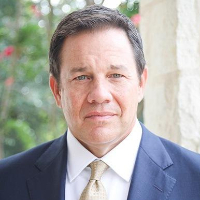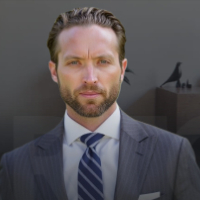Spring Branch White Collar Crime Lawyer, Texas
Sponsored Law Firm
-
 x
x

Click For More Info:
-
The Law Offices of Richard L. Cooper, P.A.
848 Brickell Avenue Suite 800 Miami, FL 33131» view mapDWI/DUI, Drug Trafficking, Felony Nationally Ranked Top 40 Under 40
With Richard L. Cooper you can expect a trusted confidant who will work diligently to fully understand your case and determine a road map to help you regain control of your life.
800-756-2781
Sam H. Lock
✓ VERIFIED *Status is reviewed annually. For latest information visit hereCriminal, Juvenile Law, White Collar Crime, Federal Trial Practice, DUI-DWI
San Antonio Criminal Defense Attorney | Bexar County DWI Lawyer
Mr. Lock began his career in civil litigation and then opened the doors of The Law Office of Sam H. Lock in 2000. For more than 10 years, he has been ... (more)
Gary Joseph Barton
✓ VERIFIED *Status is reviewed annually. For latest information visit hereWhite Collar Crime, DUI-DWI, Criminal
I am Gary J. Barton, and I have dedicated my life to the pursuit of justice in the field of law. My journey has taken me from the small town of Bander... (more)
Jackson Gorski
White Collar Crime, Divorce, Car Accident, Administrative Law, Federal Appellate Practice
Licensed: 11 Years
Marc S T Dworsky
Banking & Finance, White Collar Crime, Employee Rights, Science, Technology & Internet, Lawsuit & Dispute
Status: In Good Standing *Status is reviewed annually. For latest information visit here Licensed: 37 Years
Lynda Ann Romero
White Collar Crime, Federal Appellate Practice, Litigation, Other
Status: In Good Standing *Status is reviewed annually. For latest information visit here Licensed: 46 Years
Lisa Kathryn Marino
Construction, White Collar Crime, Criminal, Corporate
Status: In Good Standing *Status is reviewed annually. For latest information visit here Licensed: 21 Years
Wayne D. Meissner
Criminal, White Collar Crime
Status: In Good Standing *Status is reviewed annually. For latest information visit here Licensed: 58 Years
Bobby R. Taylor
Criminal, International Other, White Collar Crime
Status: In Good Standing *Status is reviewed annually. For latest information visit here Licensed: 53 Years
Robert B. Burns
Personal Injury, Criminal, White Collar Crime, Immigration, DUI-DWI
Status: In Good Standing *Status is reviewed annually. For latest information visit here Licensed: 48 Years
Joseph A. Turner
Criminal, Government, Other, White Collar Crime
Status: In Good Standing *Status is reviewed annually. For latest information visit here

 Richard L. Cooper Miami, FL
Richard L. Cooper Miami, FL AboutMiami Attorney at Law
AboutMiami Attorney at Law ServicesCriminal Defense
ServicesCriminal Defense

